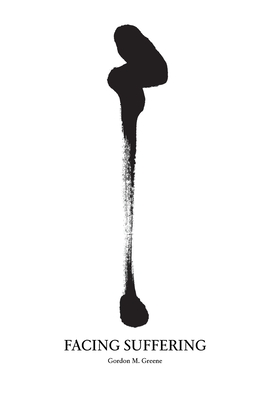Facing Suffering

Facing Suffering
This book recounts the work it takes to become a hospital chaplain, showing how intensely personal and physical that experience can become.
The author started his chaplain training with the arrogance of a medical school faculty member and the certainty of a Zen priest and teacher. And he started with a drive to reform a system of care that hadn't served his wife and himself when their youngest son received a diagnosis of cerebral palsy years earlier.
But he hadn't counted on the humbling that work with patients, some of them with sorrows beyond measure, can bring. Once his arrogance and certainty had been shaken, he found unexpected forms of caring for patients and staff, and for himself.
Suffering, like loneliness or love, is a core human experience. The key question for any of us is, "How will I survive this?" But an equally tough question for those whose work is to alleviate suffering is "How will I face this? Not just this particular person with this particular pain but the relentless flow of suffering that comes in the door day after day, year after year?"
Unfortunately, there is very little literature that describes how one learns to face suffering. There are books that talk about the nature of suffering from a religious point of view. There are books that talk about the psychological needs for health care professionals to be "protected" from the suffering and trauma they face during their work.
There are books that talk about a Buddhist perspective on alleviating suffering. There are also numerous books that talk about the role of "mindfulness" in working with patients, but none of these books do what this book does: showing how the author was shaped to do the work they do. The underlying premise of this book is that if you yourself haven't learned to face suffering, then your ability to help others face suffering is limited.
The author has trained in Zen Buddhism for over forty years, most recently serving as the head priest for the rural training facility of Chosei Zen in rural Wisconsin. Before moving to Wisconsin, he was a faculty member for fifteen years in the School of Medicine at the University of Hawaii, working to teach medical students and residents how to best form a therapeutic relationship with patients. Now he has a role as clinical professor of Family Medicine at the University of Wisconsin in Madison.
PRP: 105.34 Lei
Acesta este Prețul Recomandat de Producător. Prețul de vânzare al produsului este afișat mai jos.
94.81Lei
94.81Lei
105.34 LeiIndisponibil
Descrierea produsului
This book recounts the work it takes to become a hospital chaplain, showing how intensely personal and physical that experience can become.
The author started his chaplain training with the arrogance of a medical school faculty member and the certainty of a Zen priest and teacher. And he started with a drive to reform a system of care that hadn't served his wife and himself when their youngest son received a diagnosis of cerebral palsy years earlier.
But he hadn't counted on the humbling that work with patients, some of them with sorrows beyond measure, can bring. Once his arrogance and certainty had been shaken, he found unexpected forms of caring for patients and staff, and for himself.
Suffering, like loneliness or love, is a core human experience. The key question for any of us is, "How will I survive this?" But an equally tough question for those whose work is to alleviate suffering is "How will I face this? Not just this particular person with this particular pain but the relentless flow of suffering that comes in the door day after day, year after year?"
Unfortunately, there is very little literature that describes how one learns to face suffering. There are books that talk about the nature of suffering from a religious point of view. There are books that talk about the psychological needs for health care professionals to be "protected" from the suffering and trauma they face during their work.
There are books that talk about a Buddhist perspective on alleviating suffering. There are also numerous books that talk about the role of "mindfulness" in working with patients, but none of these books do what this book does: showing how the author was shaped to do the work they do. The underlying premise of this book is that if you yourself haven't learned to face suffering, then your ability to help others face suffering is limited.
The author has trained in Zen Buddhism for over forty years, most recently serving as the head priest for the rural training facility of Chosei Zen in rural Wisconsin. Before moving to Wisconsin, he was a faculty member for fifteen years in the School of Medicine at the University of Hawaii, working to teach medical students and residents how to best form a therapeutic relationship with patients. Now he has a role as clinical professor of Family Medicine at the University of Wisconsin in Madison.
Detaliile produsului











